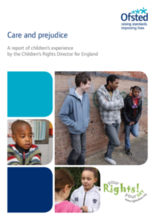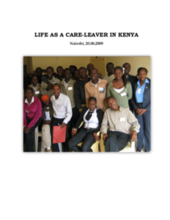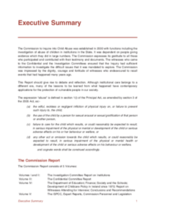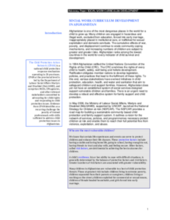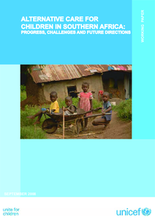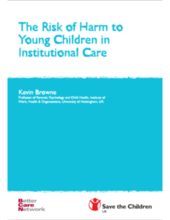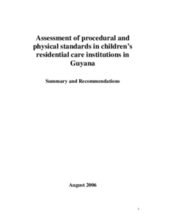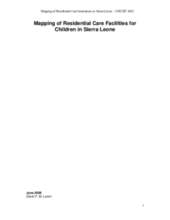Displaying 671 - 680 of 772
Summary of conference declarations and recommendations prepared by over 400 conference participants emphasizing the crucial importance of family based care for children without parental care.
Report is based on a survey of 316 children and discussions with a further 46 children on their experiences as children in care.
Manual to assist countries in strengthening their information system around children in formal care through data collection around 15 global indicators
This report is the result of a workshop held with a group of young care-leavers drawn from ten different charitable children’s institutions or rehabilitation centres and of a questionnaire carried out on the young care-leavers.
Keys findings from the full investigation into state-run children's institutions in Ireland from the 1930s - 1990s
This paper outlines a vision for the network of services, policies, and programmes necessary to protect children at risk and enable them to reach their full potential, free from violence, exploitation, and abuse.
This report, prepared for UNICEF East and Southern Africa Regional Office (ESARO) assesses the capacity in Malawi, South Africa, Swaziland and Zambia to manage alternative care systems for children.
Analysis of the impact of institutionalization on young children with core recommendation for policy and practice to ensure children's right to family is upheld.
Examines the capacity of childcare institutions and the monitoring and reintegration meausures necessary to ensure child safety in such.
Mapping of existing facilities caring for children in residential capacity for use in developing child protection standards

